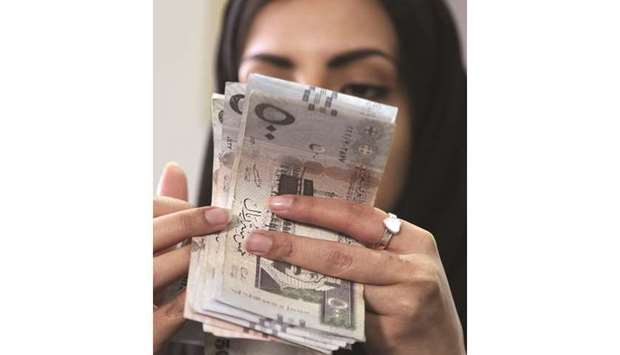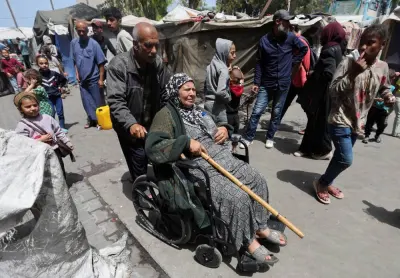Saudi Arabia’s bonds declined and pressure on the riyal rose after drones struck at the heart of the kingdom’s biggest source of revenue. The sudden burst of tension across the Gulf served as a reminder of the geopolitical risks.
The yield on the nation’s 2028 dollar bonds rose to 2.87%, the highest in more than a month, after oil production was slashed in half. Forwards contracts on the riyal headed for the biggest jump in more than four years on the prospect of a dollar squeeze, and Saudi Aramco’s dollar notes also fell.
“The crown jewel of the Saudi oil industry has just been shown to be highly vulnerable to attacks that might have been carried out by low-cost, low-tech drones and that will be almost impossible to prevent from occurring again,” said Michael Every, the head of Asia financial markets research at Rabobank in Hong Kong.
The risk of more attacks can’t be discounted, especially after Yemen’s Houthi rebels said oil installations in Saudi Arabia remain among their targets. Saudi Arabia can restart a significant volume of the halted oil production within days, but needs weeks to restore full output capacity, people familiar with the matter said.
The attack over the weekend caused the worst disruption to oil markets on record and was a stark reminder of the vulnerability of the nation’s oil fields. While the kingdom has striven to reduce its reliance on crude revenue, energy sales are still a crucial source of income for the Gulf state.
The yield on Aramco’s dollar bonds due 2029 climbed seven basis points to 3.14%. Brent crude soared as much as 19% yesterday, and 12-month forwards on the riyal, which has been pegged to the US dollar for decades, soared almost 100%.
Saudi equities were the outliers, rising 1%, which may fuel speculation that funds tied to the government stepped in to support the market. The gauge on Sunday declined as much as 3.1% within the first minute of trading, but curbed its loss to 1.1% at the close.
In spite of the strikes, Aramco will stick with plans to list its shares, according to people with knowledge of the matter. It’s considering first selling a 1% stake through a listing on the Saudi stock exchange, with the possibility of offering another 1% on the local bourse at a later date, one person with knowledge of the matter said last week.
If it does, the assault may lower the company’s valuation.
“The vulnerability of Saudi infrastructure to attacks, historically seen as a stable source of crude to the market, is a new paradigm the market will need to deal with,” said Virendra Chauhan, a Singapore-based analyst at industry consultant Energy Aspects Ltd.

A Saudi woman counts Saudi riyal banknotes at a money exchange shop in Riyadh (file). Forwards contracts on the riyal yesterday headed for the biggest jump in more than four years on the prospect of a dollar squeeze, and Saudi Aramco’s dollar notes also fell.


